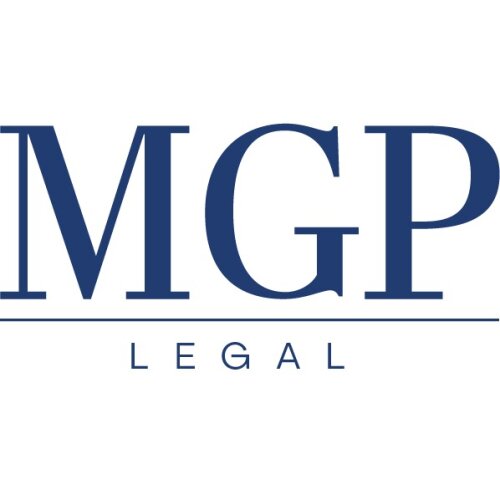Best Domestic Violence Lawyers in Florence
Share your needs with us, get contacted by law firms.
Free. Takes 2 min.
Free Guide to Hiring a Family Lawyer
List of the best lawyers in Florence, Italy
About Domestic Violence Law in Florence, Italy
Domestic violence is a serious issue that affects many individuals and families in Florence, Italy. It refers to any form of physical, psychological, or sexual abuse that occurs within a domestic or intimate relationship. The Italian legal system recognizes the gravity of domestic violence and has enacted laws to protect victims and hold perpetrators accountable.
Why You May Need a Lawyer
Legal assistance is crucial for individuals involved in domestic violence cases in Florence. A lawyer specializing in domestic violence law can provide guidance and support throughout the legal process. They can help you understand your rights, gather evidence, and ensure your safety. Some common situations where you may need a lawyer include:
- Filing for a restraining order or protection order
- Seeking legal separation or divorce from an abusive partner
- Pursuing criminal charges against the abuser
- Navigating child custody and visitation issues
- Obtaining financial support or compensation for damages
Local Laws Overview
The local laws in Florence, Italy recognize domestic violence as a crime and offer legal protection to victims. Some key aspects of the local laws relevant to domestic violence cases include:
- Domestic violence is a criminal offense punishable by law.
- Victims have the right to file a complaint with the police and seek a restraining order or protection order against the abuser.
- The court may order mandatory counseling or therapy for the abuser.
- Violating a restraining order is a criminal offense.
- Victims are entitled to legal representation and can access free or low-cost legal services.
Frequently Asked Questions
Q: How can I report domestic violence?
A: If you are a victim or witness domestic violence, immediately contact the police by dialing 112. They will guide you through the reporting process and connect you with resources to ensure your safety.
Q: What happens after I file a complaint?
A: Once you file a complaint, the police will investigate the case and gather evidence. If there is sufficient evidence, the prosecutor may bring charges against the abuser, and the case will proceed to trial.
Q: Can I get a restraining order against my abuser?
A: Yes, as a victim of domestic violence, you have the right to request a restraining order from the court. A restraining order prohibits the abuser from contacting or approaching you or your family. Your lawyer can assist you in obtaining a restraining order.
Q: Will I have to testify in court?
A: Testifying in court may be required, but your lawyer will guide you through the process and help you prepare. The court aims to provide a safe and supportive environment for victims during proceedings.
Q: Can I receive financial assistance for medical expenses or damages?
A: Yes, victims of domestic violence may be eligible for compensation for medical expenses and damages. Your lawyer can help you assess your options and guide you through the process of seeking financial assistance.
Additional Resources
If you or someone you know is experiencing domestic violence in Florence, Italy, these resources can provide further support and guidance:
- National Anti-Violence Hotline: 1522
- Associazione Artemisia - Organization offering support for victims of domestic violence
- Centro Antiviolenza - Local center providing assistance and counseling for victims
Next Steps
If you require legal assistance in a domestic violence case, it is crucial to seek help promptly. Here's what you can do:
- Contact a lawyer specializing in domestic violence in Florence.
- Document any evidence of the abuse, including photos, messages, or medical records.
- File a police report and provide them with all relevant information.
- Discuss your options with your lawyer, including obtaining a restraining order or pursuing criminal charges.
- Follow your lawyer's advice and guidance throughout the legal process.
Lawzana helps you find the best lawyers and law firms in Florence through a curated and pre-screened list of qualified legal professionals. Our platform offers rankings and detailed profiles of attorneys and law firms, allowing you to compare based on practice areas, including Domestic Violence, experience, and client feedback.
Each profile includes a description of the firm's areas of practice, client reviews, team members and partners, year of establishment, spoken languages, office locations, contact information, social media presence, and any published articles or resources. Most firms on our platform speak English and are experienced in both local and international legal matters.
Get a quote from top-rated law firms in Florence, Italy — quickly, securely, and without unnecessary hassle.
Disclaimer:
The information provided on this page is for general informational purposes only and does not constitute legal advice. While we strive to ensure the accuracy and relevance of the content, legal information may change over time, and interpretations of the law can vary. You should always consult with a qualified legal professional for advice specific to your situation.
We disclaim all liability for actions taken or not taken based on the content of this page. If you believe any information is incorrect or outdated, please contact us, and we will review and update it where appropriate.










